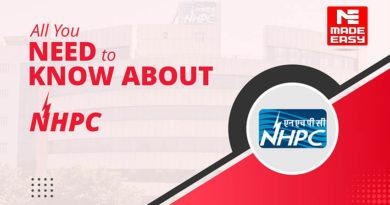How to Set Realistic Goals?
“It’s harder to stay on top than it is to make the climb. Continue to seek new goals.”– Pat Summitt
The science behind goal setting shows, that by having goals we stimulate our brain towards a certain objective which has to be achieved in stipulated time period. Your brain believes that obtaining this goal is an essential part of who you are. Most of the intellectuals and inspirational personalities set goals for themselves and then spend the rest of the time chasing that goal. Once the goal has been achieved you set yourself new goals to chase.
While goal setting is easy, what matters is the type of goals that you are setting. We all have dreams but only the ones who set realistic goals to reach their dreams are able to convert those dreams into reality. So only goal setting is not the key, setting realistic goals in what is needed when you are aiming for something big in life like cracking an exam or achieving greatness.
Table of Contents
Why set Goals?
While everybody around talks about setting goals, let us not just follow it blindly but instead break into detail the basics of goal setting to understand the science beneath it.
Let us understand this with a simple example. If you are asked to climb Everest today, it sure is going to be an exciting moment for most of you, but you will not immediately start packing and start on your journey. Some basic things that you will do before you begin your journey are:
- Learn about Everest: Height, the path to be followed, some special skills if required and your health.
- Read about past experiences: You will search about the past trekkers, who have been to Everest, in order to understand how they went and what their journey was.
- You will look at the path to be followed to reach Everest and the time that will be required t reach there.
- You will learn about the stoppages you will require in order to finally reach the summit.
- The equipments and necessary things that you must carry to Everest to age your journey are simple and easy.
- Finally keeping all that in mind, you will set a goal for yourself.
Well, you all will agree with me on the basic details that you will research before going to Everest. Well the GATE or ESE Examination is like an Everest for you. You need to first prepare for yourself for it before you actually start on your journey and reach the summit by clearing the exam.
Some might say that you can straight away start the journey and face the obstacles as and when they come, well that is a possible way to deal with it. Science however negates this analogy by saying that when we break a big task into smaller achievable goals, it no more remains a task, but the end product of achieving your goals. So, prevention is always better than cure. Therefore, instead of thinking about a possible cure when you are stuck midway, it is better to play safe and take preventive actions beforehand.
We hope through this example you are able to understand the science behind setting goals. Goal setting is an important part of success as through that you consciously direct our energies towards the final outcome. While some things come to you when you least expect them, you need to work hard and set realistic goals and no one succeeds by sheer luck.
Types of goals
So why one needs to set goals is clear, now we shall discuss how we can set realistic goals. A realistic goal has various features, some of which are as mentioned below:
- A realistic goal should be directed and not random.
- A realistic goal must be aimed at something which will be achieved once the goals are completed efficiently.
- Realistic goals are further divided into various other types of goals like Long Term, Short Term, and mid-term goals.
- Realistic goals are well planned and executed to ensure that the destined aim is achieved in the designated time period.
Thus, these are some of the basics related to realistic goals which must be kept in mind while making your goals. While the other points are pretty clear we would like to discuss the various types of goals that one must-have.
No matter which exam you are preparing for, all the tasks of preparing and appearing can be divided into various goals based on what are their outcomes.
- Long Term Goals: This includes the major targets which you wish to achieve after your task is complete and all other goals have been achieved. Some of the long term goals can be :
- Clear the exam that you are preparing for.
- Get your dream job in the company of your choice.
- Get the post and department that you want by clearing the ESE examination.
- Get the college of your choice and the stream that you wish to do your higher studies.
These are the long-term goals that one must have which will be further broken into smaller goals.
- Mid-term Goals: These are the goals that you wish to achieve in a smaller time frame or short term of time.
- Completing the syllabus of a particular subject.
- Clearing the first step of the ESE Examination.
- Revising the entire syllabus.
- Completing all previous year papers along with test papers.
- Attending all classes in the coaching institute.
Thus, the mid-term goals are the smaller stepping stones towards your long-term goals.
- Short-term goals: These are the goals that you need to achieve in the coming week or days.
- Complete a particular topic.
- Make and follow daily tasks.
- Completing a particular test.
- Revising the entire previous year’s questions related to a particular topic.
- Making daily notes and revising them.
These short-term goals help you get into action for working towards the mid-term goals.
By breaking the long-term goals into smaller ones helps in completing the task faster and enjoying a sense of achievement.
How to set realistic goals?
Everyone sets goals, but as discussed earlier, just setting goals in not important setting realistic goals is important. Everyone has a different way of studying and learning so setting goals and achieving them will depend on various factors like
- Time available before the exam.
- Study goals made in the available time.
- Motivation and confidence of the individual towards the exam.
- Efficiently using the time available with proper breaks and rest time.
- Flexibility is available in the Study Plan.
Now while we know what will determine your goals success, the one way of ensuring that you set realistic goals and follow them is by setting SMART Goals. SMART is a technique that is taught in various colleges and universities to help students in becoming more disciplined and efficient.
SMART goals ensure that your study goals are Specific, Measurable, Attainable, Reward and Timely. So now that we know the SMART Goals let us discuss them in detail.
Specific: The goals that you make should not b generic but specific. If you plan on studying a particular subject, then the goal should include which topic you will be reading and by when do you plan on completing the entire subject. It should also include the question paper related to the subject and any other material that you are required to study of that subject. To ensure that your goals are specific take a backward approach. Instead of making goals and then reaching your final goal, define your one-term or final goal and accordingly go back to decide your short-term or midterm goals.
Measurable: Once you have made your goals, it is important to measure and see if you have achieved them or not. For this to happen it is important that you make measurable goals. For example, studying mathematics is a nonmeasurable goal, whereas completing a certain topic of your mathematics book is a measurable goal.
So to ensure that your goals translate into your dream coming true, set measurable goals.
Attainable: The syllabus for the exams is too huge whether you are appearing for ESE or GATE and to ensure our seat in the final list it is important to complete the syllabus on time. For this to happen you can either randomly pick up books and read each chapter and complete one subject in a day or set attainable goals by breaking each subject topic-wise and then preparing them individually in the destine Time period.
So the goals you set should be attainable and not random which cannot be completed. This will only lead to procrastination of your goals and before you know the exam will be near and your syllabus will not be complete. Depending on your reading capacity and your focus time set realistic goals. Also when you start the preparation start slow and get your body and mind accustomed to the preparation phase and then increase your targets.
Reward: With so much to study, it is important to stay motivated to keep going. One of the ways to keep yourself focused and motivated is by rewarding. Acknowledging your small wins along the way will boost your confidence and enable you to believe that your SMART goals are achievable. Waiting for a massive breakthrough to celebrate and enjoy will break your focus and you may start undervaluing yourself.
However, the reward does not mean wasting time, it only means taking time for yourself and enjoying a small treat or a movie as a way of appreciation for achieving your short goal. You must still remain focused on the main goal and witness this as a stepping stone towards achieving the larger and bigger reward.
Timely: All your goals must be time-based. A goal without time is a dream. So no matter what plan you make, set a particular time period by which you need to complete the task. The time can be a little flexible in order to accommodate some extra work or engagement that may come unannounced. Timely goals make the task more realistic and attainable.
Whether it is a subject, book, video, course, test papers, or your merry time everything should have a specific time allotted to ensure efficient follow-up of your goals.
Some students may have already started their preparation and may find this article useful but difficult to implement. Well, that is not the case if you do not have a plan then make one keeping the SMART Goals in mind, however, if you already have one then analyze whether you have made SMART goals and if not then you can always make amendments to your goals.
We hope this article helps you in your preparation until then stay focused on your goal and all the best for all your future endeavors.
Dear Aspirants,
Your preparation for GATE, ESE, PSUs, and AE/JE is now smarter than ever — thanks to the MADE EASY YouTube channel.
This is not just a channel, but a complete strategy for success, where you get toppers strategies, PYQ–GTQ discussions, current affairs updates, and important job-related information, all delivered by the country’s best teachers and industry experts.
If you also want to stay one step ahead in the race to success, subscribe to MADE EASY on YouTube and stay connected with us on social media.
MADE EASY — where preparation happens with confidence.

MADE EASY is a well-organized institute, complete in all aspects, and provides quality guidance for both written and personality tests. MADE EASY has produced top-ranked students in ESE, GATE, and various public sector exams. The publishing team regularly writes exam-related blogs based on conversations with the faculty, helping students prepare effectively for their exams.





I found this article very much useful and im planning accordingly…thank you very much…keep bringing such useful context for us 🙏👌👌👌
Dear Candidate,
Thanks for writing to us. We are glad to know that you liked this article. Keep visiting our blog to get more content like this.
Regards,
Team MADE EASY